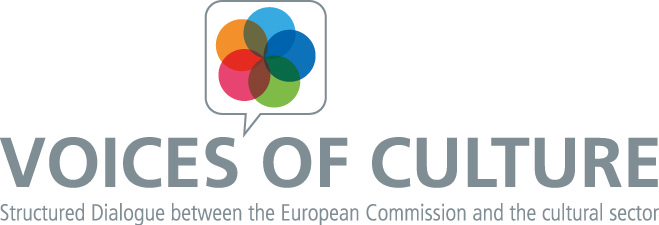[fusion_builder_container hundred_percent=”yes” equal_height_columns=”yes” hide_on_mobile=”small-visibility,medium-visibility,large-visibility” id=”Theme-container” background_position=”center center” background_repeat=”no-repeat” fade=”no” background_parallax=”none” enable_mobile=”no” parallax_speed=”0.3″ video_aspect_ratio=”16:9″ video_loop=”yes” video_mute=”yes” border_style=”solid” padding_right=”0px” padding_left=”0px”][fusion_builder_row][fusion_builder_column type=”1_4″ layout=”1_4″ spacing=”” center_content=”no” hover_type=”none” link=”” min_height=”” hide_on_mobile=”small-visibility,medium-visibility,large-visibility” class=”Color-column-4″ id=”Color-column” background_color=”” background_image=”” background_position=”left top” undefined=”” background_repeat=”no-repeat” border_size=”0″ border_color=”” border_style=”solid” border_position=”all” padding_top=”0px” padding_right=”30px” padding_bottom=”0px” padding_left=”30px” margin_top=”” margin_bottom=”0px” animation_type=”” animation_direction=”left” animation_speed=”0.3″ animation_offset=”” last=”no”][fusion_imageframe image_id=”542″ style_type=”none” hover_type=”none” align=”none” lightbox=”no” linktarget=”_self” hide_on_mobile=”small-visibility,medium-visibility,large-visibility” animation_direction=”left” animation_speed=”0.3″]https://www.voicesofculture.eu/wp-content/uploads/2017/02/knowledge-white.png[/fusion_imageframe][fusion_title hide_on_mobile=”small-visibility,medium-visibility,large-visibility” size=”3″ content_align=”left” style_type=”none”]
Skills, Training & Knowledge Transfer in Cultural Heritage
[/fusion_title][fusion_button link=”https://www.voicesofculture.eu/wp-content/uploads/2018/06/VoC-Skills-and-training-Final-report-with-Appendix1.pdf” title=”” target=”_blank” link_attributes=”” alignment=”” modal=”” hide_on_mobile=”small-visibility,medium-visibility,large-visibility” class=”” id=”” color=”default” button_gradient_top_color=”” button_gradient_bottom_color=”” button_gradient_top_color_hover=”” button_gradient_bottom_color_hover=”” accent_color=”” accent_hover_color=”” type=”flat” bevel_color=”” border_width=”” size=”large” stretch=”default” shape=”round” icon=”fa-chevron-right” icon_position=”left” icon_divider=”no” animation_type=”” animation_direction=”left” animation_speed=”0.3″ animation_offset=””]BRAINSTORMING REPORT[/fusion_button][/fusion_builder_column][fusion_builder_column type=”3_4″ layout=”3_4″ spacing=”” center_content=”no” hover_type=”none” link=”” min_height=”” hide_on_mobile=”small-visibility,medium-visibility,large-visibility” class=”” id=”Color-text-4″ background_color=”” background_image=”” background_position=”left top” undefined=”” background_repeat=”no-repeat” border_size=”0″ border_color=”” border_style=”solid” border_position=”all” padding_top=”0px” padding_right=”10%” padding_bottom=”50px” padding_left=”10%” margin_top=”” margin_bottom=”0px” animation_type=”” animation_direction=”left” animation_speed=”0.3″ animation_offset=”” last=”no”][fusion_title hide_on_mobile=”small-visibility,medium-visibility,large-visibility” size=”1″ content_align=”left” style_type=”none”]
About the theme
[/fusion_title][fusion_text]
The European Commission has decided to open a Structured Dialogue with some selected stakeholders on the topic “Skills, Training and Knowledge Transfer: traditional and emerging heritage”.
The Commission Communication of July 2014 (Towards an integrated approach to cultural heritage for Europe: https://ec.europa.eu/culture/library/publications/2014-heritage-communication_en.pdf) highlighted the many challenges that the heritage sector is facing: increased risk of destruction due to natural or man-made hazards, decline in participation in traditional cultural activities, digitisation and online accessibility of cultural content which is shaking up traditional models and transforming value chains.
While European expertise in heritage preservation and conservation is well renowned, the combined effect of the age pyramid and cuts in public budgets are affecting the transmission of knowledge and skills to the younger generations. This is true both for the tangible and the intangible cultural heritage. A lack of high-level professionals in “traditional” occupations is already predictable, therefore it is important to explore possible responses to short, medium and long terms, especially as the cycle of professional preparation (training, learning, experience) in these areas is often very long.
This happens while the international demand for specialized, technical or administrative training in the whole chain of heritage skills is constantly increasing, including the reception and training of foreign professionals. Thus, it is urgent for Europe to consider the responses to enhance, promote and protect all these traditional, technical and professional skills.
Moreover, the new integrated and participatory approaches require that the heritage sector develops new professional skills, in order to innovate management and business models, attract new audiences and be able to negotiate with the many stakeholders and authorities involved in the valorisation and preservation of cultural heritage sites, traditions and living expressions. New skills and competences are also needed to make better use of the new technologies to preserve heritage, and enhance the visitor experience in heritage sites and museums.
These challenges all need to be addressed to ensure the sustainability of Europe’s cultural heritage. The 2015-2018 Work Plan for Culture identifies cultural heritage as one of its four key priorities. In this context, a specific attention is given to capacity building for heritage professionals and to the transmission of traditional skills and know-how in emerging professions, including in the context of the digital shift. To pursue this aim an Open Method of Coordination (OMC) expert group has been established over the period 2017-2018, to map existing schemes and identify emerging skills and training needs in the tangible, intangible and digital cultural heritage field. Moreover a specific focus on specialised skills, knowledge management and knowledge transfer in the cultural heritage sector, including the implications of the digital shift, is among the objectives of the European Year of Cultural Heritage 2018.
In order to complement the reflection on this topic and to assess the needs of the cultural sector in this field, the European Commission would like to hear the voice of the cultural sector on these important issues.
Therefore two meetings (a brainstorming and a dialogue) will be held in 2017 to discuss these topics. The dialogue will be structured around the following main questions; however it will be open to participants to propose additional or different issues to focus on during the meetings and in the final report of the process:
- What are the boundaries of “traditional” and “emerging” (tangible, intangible and digital) heritage professions?
- What are the current challenges in the transmission of traditional knowledge faced by the heritage sector? Could you provide examples of how these challenges have been addressed and overcome by the cultural sector?
- What are the skills and training needs related to the “emerging” professions, including those concerning the digital shift? Could you provide examples of how these needs have been faced by the cultural sector?
- In what way is the sector professionalised? What structures are currently in place to deliver professional practitioners in the heritage sector?
- What is needed to enhance/develop capacity-building for cultural heritage and professionals?
[/fusion_text][fusion_title hide_on_mobile=”small-visibility,medium-visibility,large-visibility” size=”1″ content_align=”left” style_type=”none”]
Brainstorming session
15-16 June 2017 – Brussels/Belgium
[/fusion_title][fusion_text]
[/fusion_text][fusion_title margin_top=”” margin_bottom=”” hide_on_mobile=”small-visibility,medium-visibility,large-visibility” class=”” id=”” size=”1″ content_align=”left” style_type=”none” sep_color=””]
The Brainstorming report
[/fusion_title][fusion_text]
The present report is the result of the discussion with the European Commission. This document has been drafted and edited by several participants (listed in the report), coordinated via online digital means and in close consultation with all 33 participants who provided support and feedback (see list of participants).
[/fusion_text][fusion_title margin_top=”” margin_bottom=”” hide_on_mobile=”small-visibility,medium-visibility,large-visibility” class=”” id=”” size=”1″ content_align=”left” style_type=”none” sep_color=””]
Dialogue meeting
[/fusion_title][fusion_text]
The participants of the Structured Dialogue on “Skills, Training and Knowledge Transfer: traditional and emerging heritage” met representatives of the European Commission on the 25th of September 2017. You can download the agenda and the list of participants.
[/fusion_text][/fusion_builder_column][/fusion_builder_row][/fusion_builder_container]
